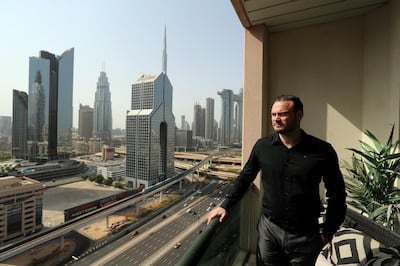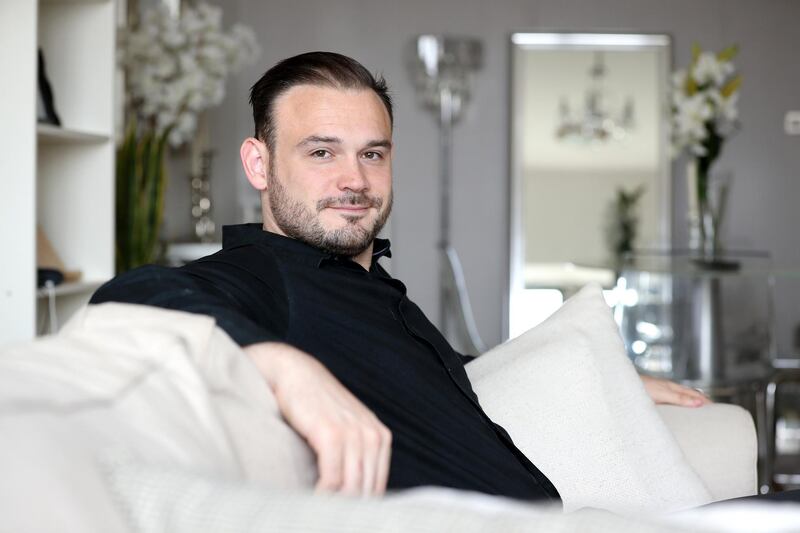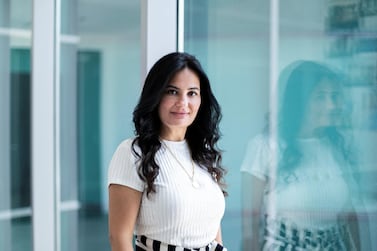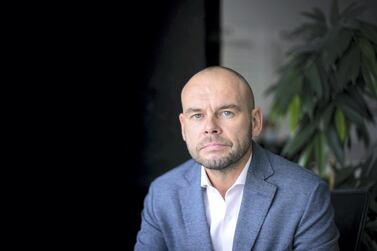Nathan McFarlane is the founder of HelpWithDebt.ae, an online platform that aims to educate and help UAE residents solve their debt problems. Originally from the UK, Mr McFarlane, 34, moved to Dubai in 2014 to work as a financial adviser but realised that his knowledge of the industry and his own debt experiences could be better used to help people find their financial freedom.
Where did you grow up and how did your upbringing shape your attitude towards money?
I grew up in Portsmouth in the south of England. My mum was a nurse and my dad was a pharmaceutical representative. They both came from an army background, so my dad served in The Falklands and my mum was an army nurse. Once they came out of the army, we lived a very simple life. My relationship with money was actually not very good if I am honest. When I was younger, I was terrible with cash and got myself into debt when I moved to London after studying for a sports psychology degree at university. I understood how it felt, how tough it was and the mistakes I made – that is what drew me into finance. I didn’t want to be in that situation anymore. When I came to the UAE in 2014, I saw it as an opportunity; a fresh start. But the first thing I did was borrow £10,000 (Dh48,114) off my mum to come here and then I got a credit card, which was the worst decision of my life.
What was your first job and how much were you paid?
I was 16 years and two weeks old when I got my first job at Burger King in my home town and I earned £3.21 per hour.
What was the earliest lesson you learned about money?
It’s always been my ambition to push the boundaries and I think the lesson that I have learnt is not to spend money before you have it. You can have ambition but manage things correctly to build whatever it is you are trying to build. I didn’t have my first credit card until I was 21. I probably had £7,000 of credit card debt, which I defaulted on. I understood the process but I couldn’t get out of it. My mum bailed me out. But when I moved to London, it opened up my ambition and I was around people who had gained success. Obviously, they were a lot more efficient with money than I was when I was younger.
Why did you move to the UAE?
In 2014, I was working on a start-up with a friend in London but he wanted to put it on hold for a while as he was going through a divorce. He asked me to wait for six months and come back. That start-up is now in eight different countries and is valued at US$200 million (Dh734.5m)! I don’t know if that was a good idea or not but I had made the decision that I was going to go out on my own. I accepted an opportunity to come to Dubai to work in financial services but it was not what I expected as I was selling financial products. I despised it, to be honest. On the flipside, I could see that you could help people – to me it was all about relationships with people. I worked there for three years and then moved over to an insurance brokerage, which is run by a very professional guy who is not from the financial advisory space. He was very open to the idea of me trying to do something to help people in debt rather than just make a quick buck. I am still working with the insurance brokerage and look after my insurance and investment clients, but it also allows me to focus on debt problems through my own company.
Is this when you launched HelpWithDebt.ae?
No – my time at the insurance brokerage helped me to realise that there were many Filipinos in the UAE who were not financially literate and what was being sold to them was ridiculous. They were being set up to fail and many had fallen into financial difficulties. So, in 2018 I set up Filpera, which means Filipino money, with a few friends to help Filipinos with their finances and debts.
During this time, I started to go to all the banks and saw how the collections agencies practised. At this point, there were instances where clients had been locked in rooms and told they couldn’t leave until they paid. There is not really a structure in the collections process that helps people and treats them like human beings. It’s all about collection targets and dealing with people who are naïve about their situation and don’t understand what is going to happen to them. They fear that they are going to go to jail.

Why did you launch HelpWithDebt.ae?
Filpera evolved into HelpWithDebt.ae after it became clear that getting into financial difficulty was not just a problem for Filipinos – it’s a problem for people of all nationalities in the UAE. We officially launched Help With Debt and the website this month.
Our plan is to restructure the system to aid people with their debts, to make sure that everyone has an opportunity to restructure their financial liabilities. This is so they can remain in the UAE and build the future they planned to do when they first came here. We want to help them stay and contribute to the economy.
Why do so many people need help with their debts?
There are many people who have a debt to burden ration of more than 50 per cent and this has been exacerbated by Covid-19. This issue is a ticking time bomb. When a person gets into financial difficulties, they are looking for someone to help them but the structure does not help people. It shouts at them and is aggressive towards them, even if they explain their financial situation to a collections agent, who will then only ask when the payment will be made. This means that the person won’t pick up their phone anymore and they will hide, opening up a larger problem as the person doesn’t know their rights and they are scared. They don’t want to hide and they don’t want to abscond – they want to fix the problem.
How do you help your clients become debt-free?
Firstly, we collate our clients’ information so that we can ascertain their situation. Based on that information, we then produce a valuation of their circumstances that they can use to solve the problem with the bank.
We are developing software that will allow clients to log into their credit card accounts directly through our platform and view their information in real time and this information can also be given to the banks when the client requests a restructuring of their debts. The banks will be able to see the exact circumstance of the client. This also means that our clients can see a way out of their financial difficulties. The next plan with our software is for clients to pay all their credit card bills in one place, which will also tell them when they will be debt-free.
What has been your weakest financial moment?
On February 14, 2016, I was supposed to go out for a Valentine’s Day dinner, but played football instead. I thought I had sprained my ankle and had gone to the hospital a week later, on February 21, to get my cast taken off, but the doctor told me that I’d broken my leg instead and the cast had to stay on. My plan was to walk to the metro station after my hospital appointment as I was down to my last Dh50 and wasn’t getting paid until the next day. I was on my own and didn’t want to borrow any more money, so I had to walk from the Saudi German Hospital Dubai all the way to Tecom Metro station on my crutches. I remember the date because it was so bad.
Are you a spender or a saver?
Before, I was definitely a spender but now, I put every single penny into my business.
What do you invest in?
Myself. I have experienced difficulties because of the mistakes that I made, however, with the knowledge that I’ve gained along the way I have been able to build foundations for the future that are very strong.
How much do you have in your wallet right now?
I have Dh126 in my wallet.
What financial advice would you offer your younger self?
I think the biggest piece of advice is don’t spend money to please other people. I would have been in a far better financial position now if I had not cared about what anyone else thought.









